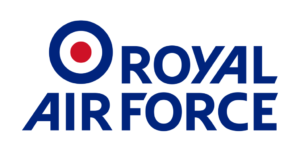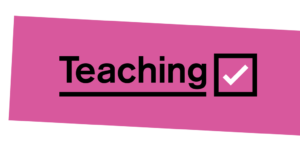
How To Become a Games Tester – Careers Guide
Have you ever wanted to play video games for a living? With a job as a Games Tester, you can turn your passion for games into a lucrative and rewarding career within a booming industry.
How much money can you earn as a games tester?
These LMI Job Trends give you a sneak peek of how much you could earn starting out for this career, and how much your salary could grow with experience.
Average salary for games tester jobs
Recent labour market information says you can earn between £30,000 and £40,000 a year as a games tester.
Your starting salary as a games tester can vary because of factors like level of experience, training, or location. It will increase over time as you build skills, knowledge and experience.
Digital Career FAQs & Insights

Is there something you’d like to know about digital careers? Maybe we can help!
Skills you need to become a games tester
Useful skills to put in your CV:
- A genuine love for, and broad knowledge of, video games
- A good understanding of industry trends and the video games market
- Excellent computer literacy
- At least some understanding of programming. Knowing one or more programming languages that are used in games development will be advantageous
- Good written and spoken English, particularly the ability to explain problems and possible solutions clearly
- Maths skills
- An analytical mind
- A detail-oriented approach
- Problem-solving skills
- The ability to work under your own initiative with minimal supervision
- The ability to work to tight deadlines
- Patience, as you may have to play the same game multiple times to find all possible faults
Top Skills-boosting Tips
Play as many different video games as you can and build up an understanding of what makes a good game versus a bad game, or a great game versus a good one.
Try keeping a “games diary” in which you write notes about the games you’ve played and what you liked or didn’t like about them. If you encounter bugs or problems in any of the games you play, consider how you might go about solving the problem if you were the game developer.
How Do You Get These Skills?
Vocational qualifications and work experience will help you build these skills over time.

Build Your Skills With the FREE Young Professional Programme
What Qualifications & Training Do You Need For Games Testing Careers?
A-Levels
A-Levels are academic qualifications that you can take after your GCSEs. If you want to become a Games Tester, subjects such as Information Technology, Computer Science, or Software Systems Development are all great choices.
T-Levels
T-Levels are a choice for learners after GCSEs alongside apprenticeships and A-levels. If you’re interested in a career in the video games industry, the T-Level qualification in Digital Production, Design and Development could be a good fit for you.
BTEC
As an alternative to A-Levels, you can do BTECs from the age of 16.
There are several BTEC options that can help you get into the video games industry as a Games Tester. Here are a few to consider:
- Level 1 Diploma in Vocational Studies (Games Design)
- Level 2 Technical in Digital Games Production
- Level 2 Extended Certificate in Information & Creative Technology (Games)
- Level 3 Certificate in Computing (Games, Apps and Encryption)
- Level 3 Extended Diploma in Games Development and Coding
- Level 3 Extended Certificate in Digital Games Design
You’ll normally need 2 or more GCSEs at grades 9-3 (A*-D) or equivalent for a Level 2 course. If your qualifications are lower than this, you’ll most likely start on a Level 1 course.
Apprenticeships
An apprenticeship is a scheme where you train while earning a starting salary. With an apprenticeship (or advanced apprenticeship) you’ll have a paid job with an employer that includes structured training and learning. This training leads to an official qualification that’s recognised by employers as an industry standard. Anyone over 16 can do an apprenticeship.
There are now many apprenticeship courses available in the computer and video games industry. Look out for titles such as Apprentice Games Developer, Game Design Apprentice, Game Programming Apprentice, Apprentice Software Developer (Games), and so on.
University degrees and graduates
You do not necessarily need a degree to become a Games Tester, but the computer gaming field is competitive and so a higher qualification can give you an edge. Look for subjects such as Software Engineering, Software Development, Computer Science, Computer Games Design, Computer Games Technology, and Computer Science with Games Technology.
Degrees of this kind are now widely available at universities across the UK.
UCAS has more information on degree courses and entry requirements.
Masters Degrees
If you already have an undergraduate degree and want to enhance your qualifications, you can take a Masters degree or other postgraduate qualification in a subject like Computer Games Design, Computer Games Technology, or Computer Games Development. These highly specialised courses take 1-2 years, depending on whether you study full-time or part-time.
Career Progression
Becoming a Games Tester is a fantastic way to get into the highly lucrative, exciting, and growing video games industry.
With experience and further training, you could become a Quality Assurance Manager, overseeing a team of Games Testers. You could also move into a programming, games development, or games marketing role.
What Work Experience Do You Need For Games Tester Jobs?
Work Experience Tips
Any work experience in the video games industry or related fields will be hugely advantageous. If there are video games shops or gaming cafés in your area, consider applying for a part-time job or asking for a work experience placement. You could also apply for work experience within a games development company or studio.
If you cannot find something directly related to video games, any paid role or work experience placement in a computing or software engineering environment will also give you valuable experience and look great on your CV.
Examples of relevant work experience include:
- Work shadowing (even if it’s just for a day)
- Work placements in a company
- Work experience placements on a college or university course
Volunteering Tips
Voluntary work looks great on your CV and there are several ways you can volunteer to build up your experience in the computing and video games industries.
If you have any contacts in the games development world, get in touch and ask if you can test games for them on a voluntary basis. If you get the go-ahead, treat this as seriously as you would a paid job. You can also reach out to studios via their online contact information, but it will be harder to get a foot in the door if you don’t know someone.
You could also consider volunteering at a games-related event, such as a gaming convention or expo, or offering your time to teach basic programming skills to young people within your school or a local youth organisation. If you are still at school, college, or university, speak to a tutor in the IT department and ask for their help in finding relevant volunteering opportunities.
What Does A Games Tester Do?
What do games tester careers involve?
A Games Tester plays new video games (or new versions of existing games) to check that the games work as intended and to identify any faults or “bugs” within the game. You may be asked to attempt to “break” a game, or deliberately discover problems within it so that these can be patched by the developers before release.
Being a Games Tester is about a lot more than just playing games all day. This role requires extensive knowledge, dedication, attention to detail, and perseverance. You’ll have to pay attention to and report on everything from the game’s visuals and graphics to its playability, accessibility, and user experience.
Example daily job responsibilities
- Play a game repeatedly, trying out different ways of playing to seek out problems
- Trying out different levels or settings within the game
- Report on bugs and faults within the game
- Use bug-tracking software or other digital tools to report problems
- Compare the game with competitors already on the market (and, if relevant, with previous versions of the same game)
- Suggest possible fixes for problems you have found
- Check for spelling and grammatical mistakes within the game or on its box or promotional materials
- Report on a game’s accessibility features (for example, subtitles for people with hearing difficulties or different colour options for those with colour-blindness)
- Providing overall feedback on the game’s quality and user experience
How To Find Games Tester Jobs: Next Steps
To find jobs for young people in this role, search on jobs boards for early career roles and opportunities with these words in the title:
- Games Tester
- Video Games Tester
- Junior Games Tester
- Games Software Tester
You can also apply directly to games development companies and studios. Don’t restrict yourself to your immediate geographical location, as many (though not all) games tester roles are partially or entirely remote and can be performed from anywhere.
Take a look at our database of local opportunities to see if there are any relevant jobs, work placements, or careers events and workshops to help you get started.
Get Into Digital Careers With Youth-Friendly Employers
These employers and organisations are here to help. They care about your potential and desire to learn, not just your qualifications and experience. They may be able to offer traineeships, apprenticeships, graduate schemes, first jobs, careers advice, wellbeing support and much more.
Digital Career Tips & Opportunities
Digital Career Guides
View job descriptions with average UK salary, useful qualifications and a variety of routes into this career.
See All Our Youth-Friendly Employers
London tech careers are in YOUR reach.
Salary? Jobs? Training? You got it. No experience? No problem. You've got the power. We'll give you the support!

























YES! I Want More Free Careers Help...
So what are you waiting for? Grab your future.































